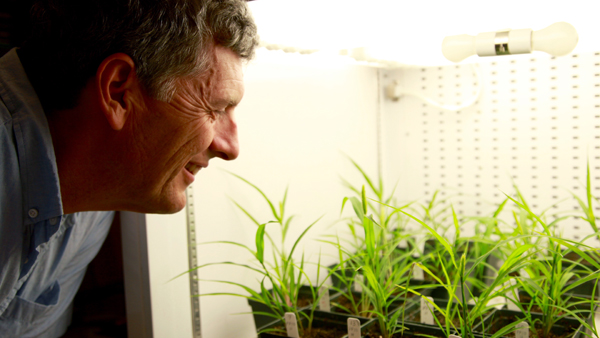The National Science Foundation (NSF) awarded Oklahoma State University associate professor of plant biology Dr. Andrew Doust a research grant in excess of $400,000 to explore the genetics of how wild grasses disperse their seeds, why domesticated cereals (like rice and maize) have lost that ability, and how that information might be used to improve agricultural efficiency.
“We will look at how genes and the environment mold the plant and assess how the plant reacts to these internal and external influences,” Doust said.
Doust’s research has been continually funded since he joined the OSU faculty in 2007. He is lead PI on a $3.2 million NSF Plant Genome Research Program grant, which was awarded in 2014.
As with the plant genome grant, this new NSF project includes an educational component for area high school teachers. Doust and co-principal investigator Julie Angle, associate professor and secondary science education program coordinator at OSU, will offer innovative opportunities for master teachers and undergraduate education majors at OSU to build research projects related to the grant’s objectives, thus participating actively in the observations and data collection required for the project.
Data will initially be taken primarily from three grains (rice, sorghum, and millet) before expanding to other grasses. Doust’s lab will attempt to discover what natural occurring mutations led to these grains retaining, rather than shedding, their seeds, and ask whether the same mechanisms are at work in each of these separate domestications. The project is inspired by the recognition that the capacity of seeds to remain on a plant, and therefore produce larger yields at harvest, is the fundamental basis of agriculture. Doust expects the results of this study to reveal much about the genetic basis for how similarities and differences between domestications have come about, and will prove useful for future economic and ecological research and development.
